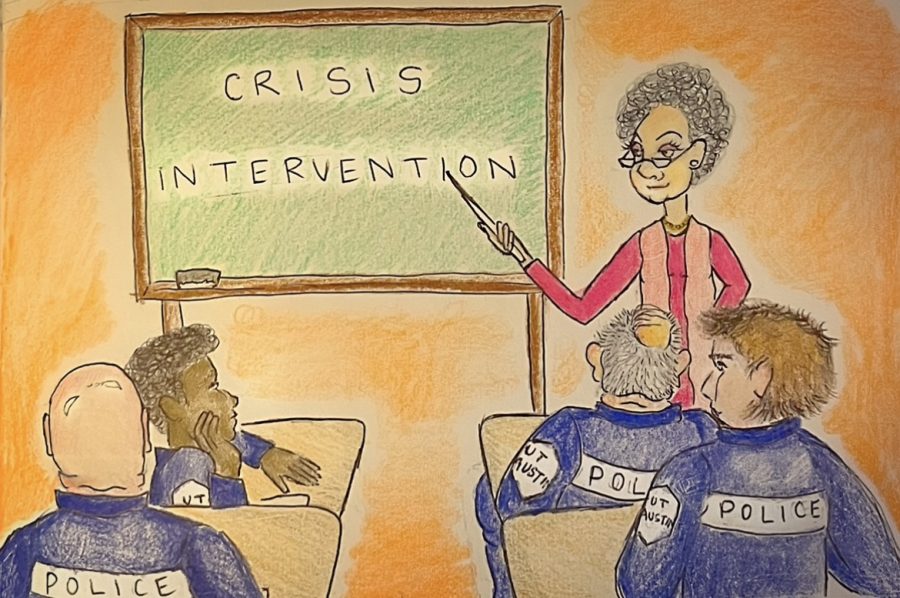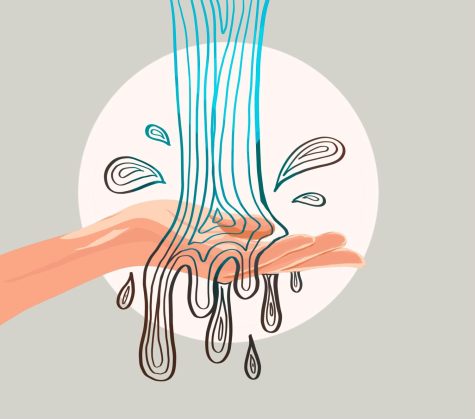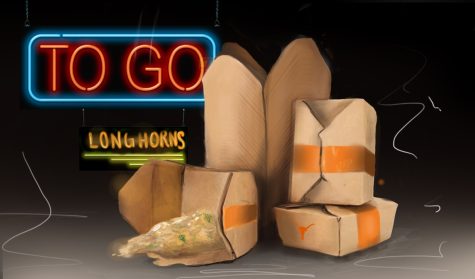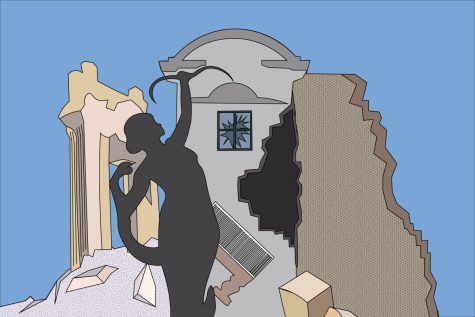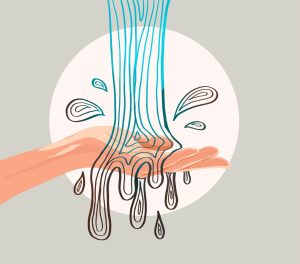UTPD officers should undergo extensive crisis intervention training
October 5, 2022
Since 2015, 21% of people fatally shot by police have had mental health struggles. There’s a steady trend of dispatched officers exercising unnecessary force on those in a mental health crisis. In response to this, The University of Texas Police Department decided to start the University Crisis Intervention Team.
Chief David Carter, the late UTPD police chief, founded UCIT in 2021 in response to tensions between the community and police. With mental health response being a main concern across the country, Chief Carter wanted to create a group to focus on sensitive calls.
Although the founding of UCIT and its partnership with the Mental Health Assistance and Response Team is a step in the right direction, all UTPD officers should undergo UCIT training. The likelihood of a non-UCIT trained officer arriving at a mental health crisis is high, and all mental health crisis calls must be treated with a great deal of sensitivity and care.
In the police academy, every officer must go through a 40-hour crisis intervention training course, which takes place over a week. However, the quality of the training depends on the instructor’s passion, and there are concerns over whether certain instructors are teaching for the right reasons.
“It’s pretty often (that crisis trainings aren’t taken appropriately). Especially when you have instructors who don’t believe in crisis intervention, but they train it just because it’s a ‘check the box’ training,” said Shawn Edwards, regional director of the Texas Law Enforcement Peer Network. “So then a lot of that reflects back on the officers coming out (of the training).”
Due to the possibility that undertrained members of the police force may respond to a possible mental health crisis, UTPD needs to train all police officers equally and extensively through UCIT. UCIT training is a partnership with multiple on-campus resource centers, including the Counseling and Mental Health Center, Veteran and Military Affiliated Services, and the Gender and Sexuality Center.
Training for UCIT members covers topics such as cultural sensitivity, how to de-escalate high-stress scenarios and self-care for officers. Every UTPD officer could benefit from these trainings. The cultural sensitivity course would be helpful, as UT is a diverse campus. Self-care for officers is important because policing is a stressful job, and ensuring officers are calm and mindful during intense scenarios is vital.
However, undertrained crisis intervention officers are still dispatched to mental health calls. This is alarming to some students, as it deters them from seeking help from UTPD.
Inês Caetano, neuroscience junior and membership manager of UT Austin’s chapter of the National Alliance on Mental Illness, described her concern regarding undertrained police officers.
“I don’t even think I would feel comfortable even calling them in the first place because I would be afraid of how they might react … I would be afraid of getting shot, you know, because they don’t know how to deal with the situation.”
This fear may be warranted. In Texas, more than 700 people have been shot by police since 2015. In many cases, the shooting may have been prevented had there been proper mental health crisis intervention.
“I think every officer across the country should receive as much mental health and crisis response training as possible. Because … every single call we interact with, there’s some type of crisis component to it,” said Sgt. David Chambers, UTPD Community Engagement Division.
Every UTPD officer should go through intensive, thorough UCIT training. There is a real possibility that an undertrained individual will be dispatched to a mental health crisis call — a scenario that, as statistics show, can be fatal.
Emejulu is a computational engineering freshman from Austin, Texas.

